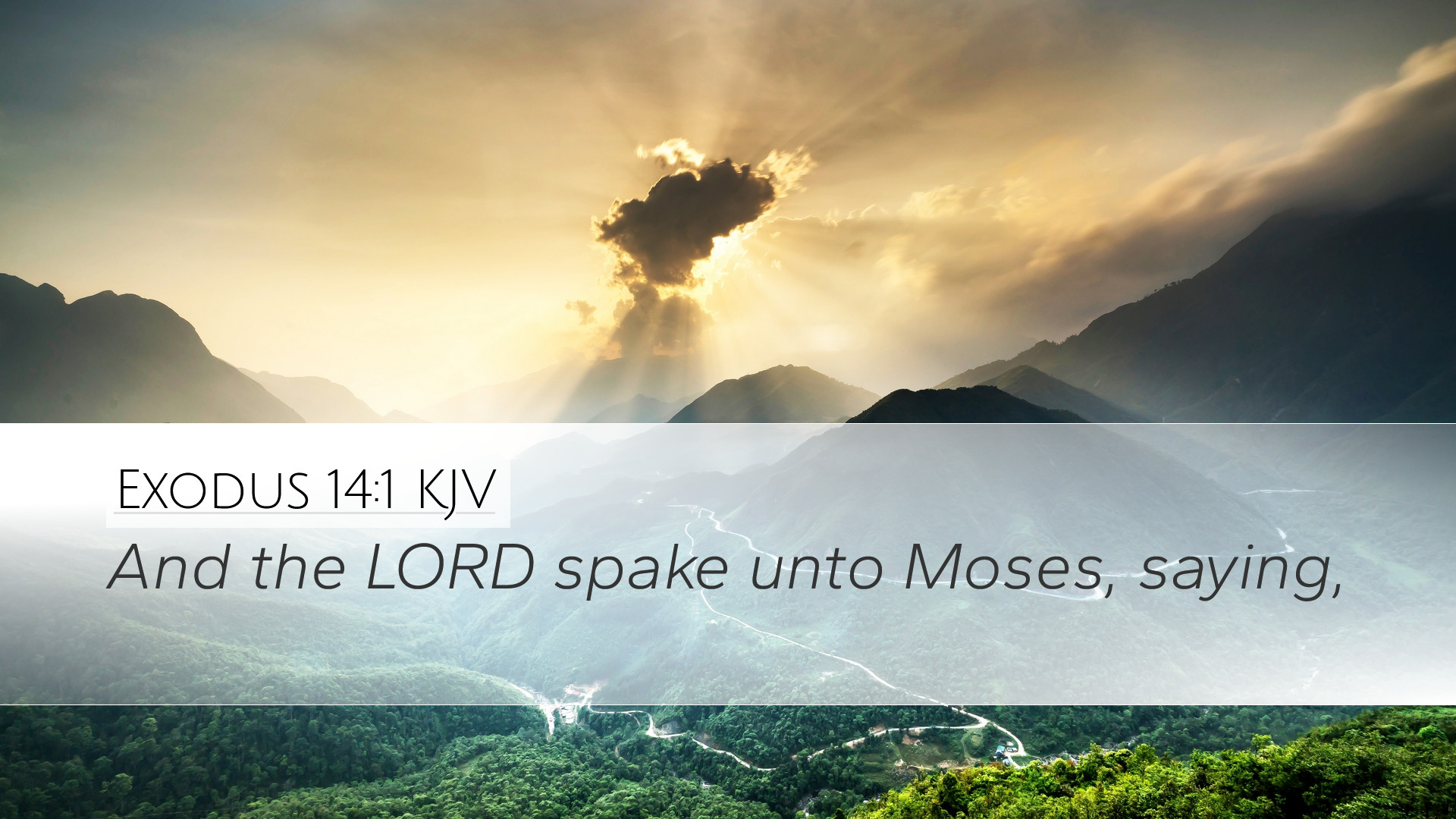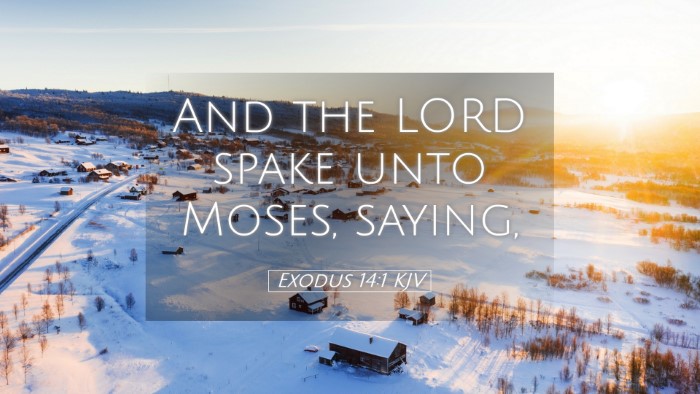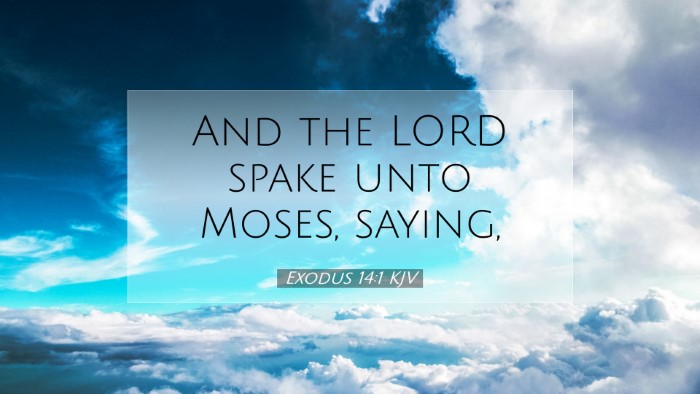Commentary on Exodus 14:1
Contextual Overview
The passage of Exodus 14:1 presents a pivotal moment in Israel's journey, as it marks the transition from slavery in Egypt to the impending deliverance through the Red Sea. The verse states:
"And the LORD spake unto Moses, saying,"
This communication reflects the direct intervention of God in guiding His people, emphasizing His active role in their liberation and the unfolding plan of salvation.
Commentary Excerpts
Matthew Henry's Commentary
Matthew Henry emphasizes the significance of divine instruction in this moment. He notes that God did not leave Israel's escape to chance but orchestrated their path with specific guidance:
- Divine Guidance: "The LORD spoke unto Moses," indicating that God has a definite plan for His people. The call to Moses signals that the leadership under divine authority is crucial for navigating through trials.
- Preparation for Deliverance: As Israel approached the Red Sea, Henry suggests that this moment encapsulates the tension between obedience and faith. The path ahead looks daunting, yet it is the obedience to God's command that will lead to miraculous deliverance.
Albert Barnes' Commentary
Albert Barnes elaborates on the significance of God's command in Exodus 14:1, noting the practical implications for the Israelites and their leaders:
- Specific Instructions: Barnes highlights that God’s directive to Moses signifies the necessity of listening to divine instruction during trials. The meticulous nature of God’s commands is essential for the unfolding of His purpose.
- A Test of Faith: Barnes points out the challenge Israel faced; having been delivered from Egypt, they encountered an impassable sea. He relates this to the spiritual journey of faith, asserting that "where God directs, He will provide." This reflects the greater theological principle that God's plans often require deep trust from His followers.
Adam Clarke's Commentary
Adam Clarke offers a detailed analysis of God’s communication to Moses, shedding light on the implications for the Israelite community:
- Divine Intervention: Clarke insists that God’s instruction illustrates His direct supervision over Israel’s affairs. This moment serves as a reminder that God's providence is involved in every step of their journey.
- Symbolism and Foreshadowing: He also points out that the Red Sea represents both a barrier and a pathway to freedom. This duality can be seen as a symbolic foreshadowing of baptism and the ultimate sacrifice of Christ, marking the transition from bondage to freedom in a New Testament context.
Theological Implications
The insights gleaned from the commentaries underscore several vital theological themes:
- The Nature of God’s Guidance: The direct speech of God to Moses emphasizes the importance of divine guidance in the believer's conduct. It persuades leaders and congregants alike to seek God’s will before undertaking significant endeavors.
- Faith Amidst Fear: The looming presence of the Red Sea symbolizes the challenges believers face today. The faith demonstrated by Moses in acting upon God's word teaches that reliance on God is paramount, even when circumstances appear dire.
- God’s Sovereignty: This passage reinforces the notion that God is sovereign over the affairs of humanity and uses His power to orchestrate salvation, revealing His character to His people as one who delivers and guides.
Practical Applications
For modern-day disciples, this commentary reflects foundational truths applicable to daily life:
- Seek God in Difficulties: As Moses sought divine direction prior to a major crisis, so too should believers approach challenges with prayer and a desire to hear from God.
- Trust in Divine Deliverance: Just as Israel needed to trust God’s deliverance at the Red Sea, Christians are called to trust in God's overarching plan, even when they do not understand the journey ahead.
- Leadership and Accountability: Church leaders today are urged to take their cues from Moses, who was receptive to God’s instructions. This serves as a model for pastoral care and guidance under God’s authority.
Conclusion
Exodus 14:1 is a profound reminder of God’s unwavering guidance and sovereignty over His people. The combined insights of Matthew Henry, Albert Barnes, and Adam Clarke enrich the understanding of this text, providing timeless lessons for scholars, theologians, and clergy. As we engage with these scriptures, let us reflect on our reliance on God’s direction and His faithful promise of deliverance.


